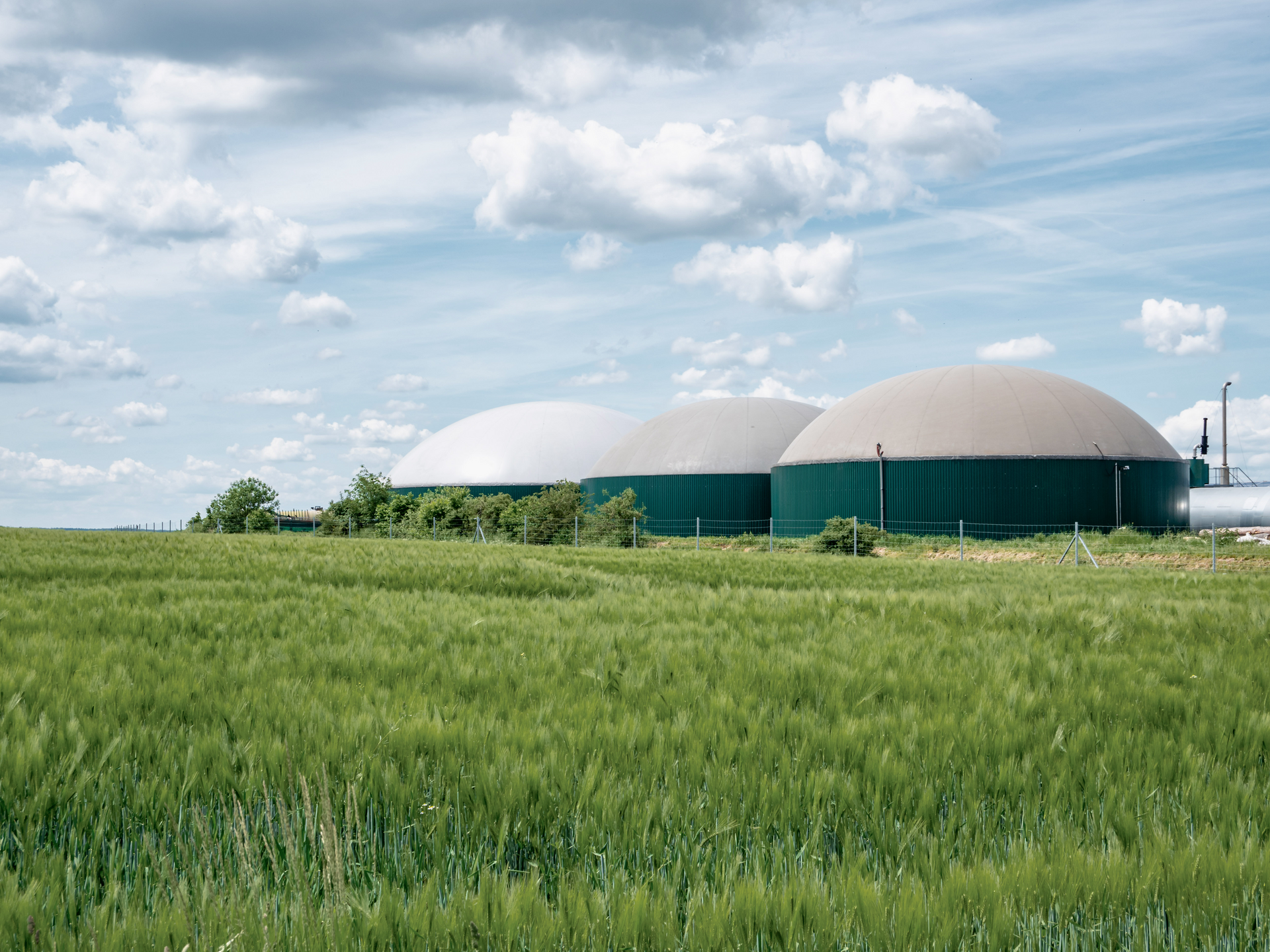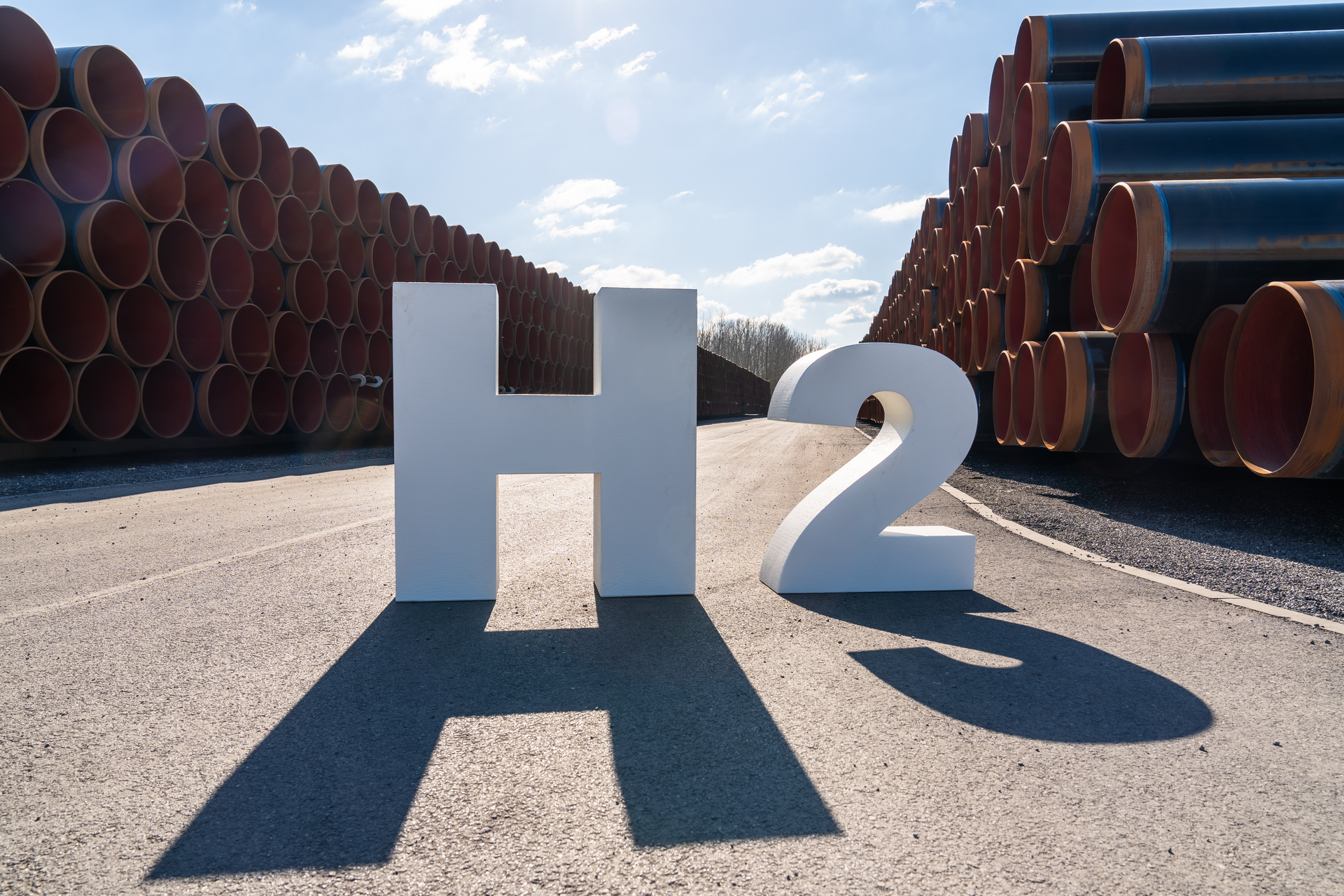
Energy transition
As a key player in the energy infrastructure sector, Fluxys is actively pioneering the shift towards low-carbon solutions to address the global climate challenge. With deep expertise in midstream infrastructure and a strong track record in supporting regulatory advances, we aim to facilitate the integration of green molecules into energy systems.
In Brazil, Fluxys Brasil is committed to support low-carbon infrastructure development for biomethane, hydrogen or ammonia, either directly or indirectly as a TBG shareholder.
Biomethane
Fluxys recognises the significant potential for biomethane production in Brazil, driven by the country’s abundant organic waste resources from agriculture and municipal solid waste.
Since, the TBG pipeline is strategically located in Brazil’s prime biomethane region, where nearly half of the nation’s proposed biomethane projects are set to take place. Fluxys aims to support biomethane developments through its (shareholding) participation in TBG. The already identified biomethane projects - which primarily utilise organic waste from sugarcane production and landfills - are expected to meet industrial, vehicular, and distribution network demands. In that context, TBG transportation network could offer access to the entire Brazilian transportation system and connect local production with national needs.
With its experience in biomethane injection in the European gas transport network, Fluxys is eager to support TBG in developing Brazil’s first midstream biomethane injection hub. This strategic initiative aims to enhance biomethane distribution capabilities in Brazil, aligning with the country’s renewable energy goals and leveraging the substantial resources within TBG’s operational area.

Hydrogen
With Brazil’s abundant renewable energy resources, the country is well-positioned to lead in the low-carbon hydrogen market, advancing both local decarbonisation efforts and meeting international demand. Almost 80% of Brazil’s electric matrix derives from hydro, solar, and wind, setting ideal conditions for competitive green hydrogen production, especially in the Northeast. Scalable hydrogen projects can capitalise on Brazil’s renewable strength to foster large-scale hydrogen hubs that serve export markets in Europe and beyond, supporting hard-to-abate sectors’ decarbonisation globally.
New national policies further strengthen this potential, as Brazil has enacted its first low-carbon hydrogen legal framework, introducing certification, tax exemptions, and other incentives to attract investment. With support from international partners like Fluxys, regulatory advances, and significant renewable potential, Brazil is strategically positioned to contribute to the global energy transition through low-carbon hydrogen production and exports.
Fluxys Brasil is committed to supporting this vision by bringing its expertise in hydrogen infrastructure and regulatory development to the Brazilian market. Recognising Brazilian Northeast as a key area for the development of green hydrogen export hubs, Fluxys is actively assessing the viability of these projects and ways to contribute to those. Through strategic partnerships, an infrastructure-focused approach, and robust investment capabilities, we aim to position Brazil as a leading exporter of green hydrogen. This vision supports Brazil’s energy transition agenda and contributes to global decarbonisation efforts.
